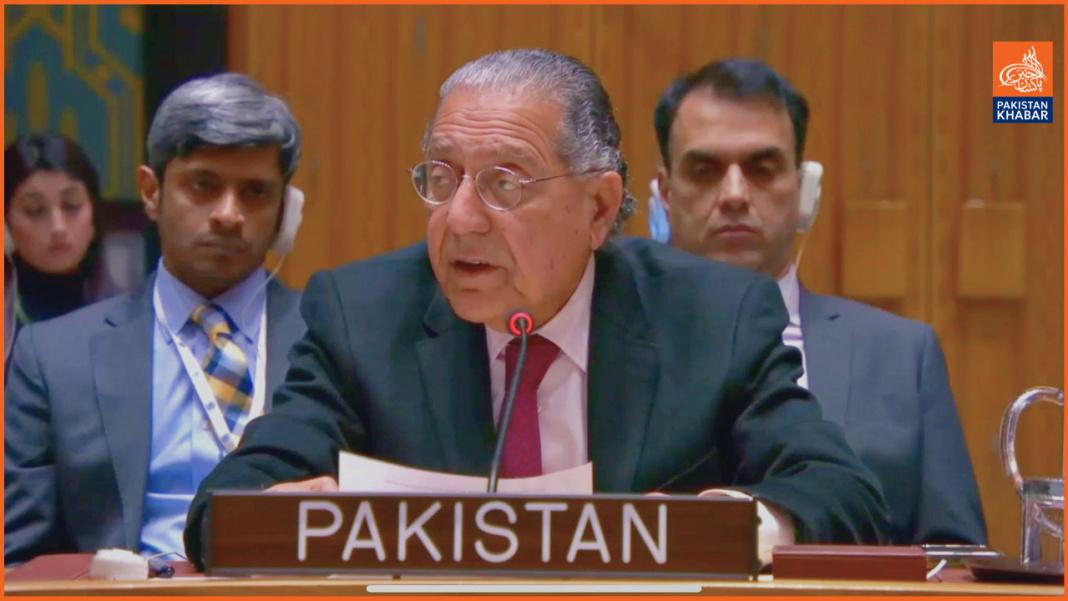Pakistan has urged the international community to focus on political inclusivity and representative governance in Syria, as the United Nations pushes for decisive action to aid the war-torn nation.
Currently serving its eighth term as a non-permanent member of the UN Security Council, Pakistan emphasized the importance of a peaceful political transition in Syria.
“Syria is at a critical point in its history,” stated Munir Akram, Pakistan’s permanent representative to the UN. “Recent political developments offer an opportunity to restore stability, peace, and normalcy in the country.”
However, Akram stressed that achieving this goal requires the establishment of an “inclusive and stable” governance structure to ensure the nation’s “unity and territorial integrity.”
The UNSC session coincided with Syria’s ongoing struggle to recover from a 14-year conflict, which has left over 17 million people—70% of the population—desperately needing humanitarian aid.
The UN Office for the Coordination of Humanitarian Affairs (OCHA) reported that more than 13 million Syrians have been displaced, with seven million internally displaced and six million abroad. Although 125,000 refugees and nearly half a million internally displaced persons returned to northwest Syria last year, they still face “desperate conditions,” according to OCHA.
A recent UN appeal called for $73.2 million in winterization aid for over 1.1 million Syrians over the next six months, a notable increase from the previous $30 million appeal issued in late 2024. Yet, as Akram noted, the UN Humanitarian Response Plan is only 33.3% funded, underscoring the need for greater international support.
Syria’s Permanent Representative to the UN, Koussay Aldahhak, called for an immediate lifting of unilateral sanctions to allow Syria to address its humanitarian needs, restore basic services, and rebuild infrastructure.
“The dawn of freedom has broken,” Aldahhak stated, urging that restrictions targeting the previous regime be lifted.
Aldahhak also condemned Israel’s actions in the Golan Heights, accusing Israel of attempting to alter the situation in Syria through military incursions.
Despite political shifts, Syria continues to face significant security challenges. A UN report noted the presence of over 60 armed groups with conflicting agendas, including the militant Islamic State (IS), the Syrian Democratic Forces (SDF), and the People’s Protection Units (YPG). Clashes continue, despite a US-brokered ceasefire near Manbij, with Turkey hinting at potential military escalation.
Akram warned of the dangers posed by extremist groups, stressing that the resurgence of Al Qaeda or IS-related groups would be unacceptable. He recommended continued monitoring by the UNSC’s 1267 Sanctions Committee.
In a separate UNSC debate, Akram called for diplomatic engagement and dialogue to address issues on the Korean Peninsula. He stated, “Provocations—such as missile tests—must end, as well as coercive actions and threats.”
“We strongly support calls for the revival of talks among relevant parties,” he added, referring to recent missile tests by North Korea. Akram reiterated Pakistan’s opposition to further nuclear weapons testing and called for dialogue and de-escalation. He also urged all parties to exercise restraint and avoid escalating tensions, suggesting that the Security Council consider adopting Confidence Building Measures to reduce tensions.




